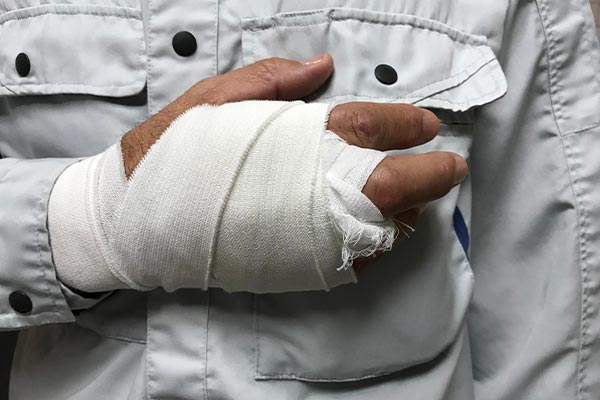Home »
How to Determine an Injury Is Work Related
Basically, a work-related injury must happen while doing something on behalf of your employer, or in the course of employment. Many of those injuries are easily defined and recognized at the workplace itself, but they could occur in company-owned trucks or other locations, as long as the employee was doing something connected to the job.
Some work-related illnesses or injuries might be surprising. It could include lung cancer that was caused by second-hand smoke at a restaurant that permits smoking. It could include a sprained ankle after falling off a ladder. It could include carpal tunnel syndrome caused by too much time at a computer keyboard with no breaks.
Of course, there are some gray-area incidents and some potential surprises there, too.
A company-sponsored holiday party — even at a bar — is considered a work-related activity. If you took a fall there, the injury would be covered by workers comp. Now if you and your manager went to that same bar for after-work drinks and you fell, it wouldn’t be considered “work-related’’ because that’s not an official company event.
If an injury happens during a lunch break, it might be considered “work-related’’ if it occurs at the company cafeteria, on other employer-owned grounds or if it has a legitimate connection to the workday (such as taking a client to lunch at a restaurant).
If there’s a car accident or an injury during a car ride, it could be covered by workers comp if the employee is performing a job-related task, such as making a delivery, driving another employee for business purposes, running a work-related errand or driving from one worksite to another. Taxi drivers or truck drivers can file workers comp claims if they are injured during regular work hours.
There have even been occasions when “horseplay’’ — or other instances where employees were disregarding workplace safety rules — constitutes a workers comp claim. But state laws and courts are divided on the issue.
The legal definition of horseplay is an act of having rough fun that is dangerous and can result in injuries. Horseplay is not generally accepted in the workplace because it doesn’t contribute to productive work being accomplished. So how can someone be involved in horseplay, yet still be compensated for injuries sustained?
Here are three examples from the same state (Missouri) that show how the same laws can be affected by court interpretation.
What happened: A man injured his knee and arrived at work using crutches. A co-worker, seeking fun, tipped him over and the man fell down and severely injured his already hurt knee.
The ruling: The man was the victim of horseplay, not the instigator. He was entitled to workers compensation.
What happened: A restaurant worker, having fun with his co-worker, kicked his leg several feet into the air from under the co-worker. The floor was wet. The worker, who kicked his leg, fell down and injured his leg and groin.
The ruling: The worker was entitled to workers compensation. The court ruled the act wasn’t horseplay because it was normal behavior for the restaurant wait staff and not considered unacceptable behavior.
What happened: At a construction site, a worker tries to playfully bump his co-worker with the rear-view mirror of his truck. The co-worker had shaken his backside at the man. The man in the truck tried to play along. While reversing the truck, instead of the rear-view mirror, the man bumped his co-worker with the bed of his vehicle and injured the co-worker.
The ruling: Workers compensation was denied. It was an act of horseplay beyond the regular scope of work. The injured man also was engaged in the event.
Other examples for what could happen under the broad definition if you are injured at work:
- Even if alcohol is involved, an injury could be considered work-related if it was provided at a work-sponsored event.
- Anxiety or depression could be covered if they were sustained on the job (or caused by the job).
- Pre-existing conditions (if worsened during the course of employment) might be covered in some instances.
- The definition of “employee’’ often swings a claim’s success. Certain workers — such as domestic workers, agricultural workers, seasonal workers or undocumented workers — are exempt from workers comp in many states.
Sources:
- Simpson, K., (2018) Types Of Injuries And Workplace Illnesses That Qualify For Workers Comp. Retrieved from https://blog.safetyculture.com/industry-trends/types-of-injuries-and-workplace-illnesses-that-qualify-for-workers-comp


